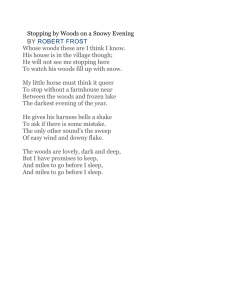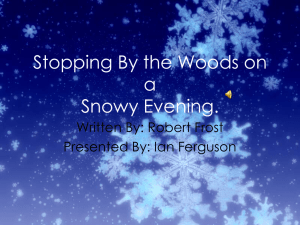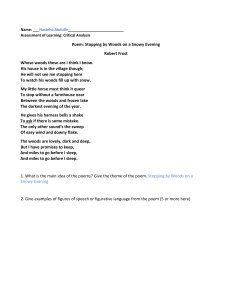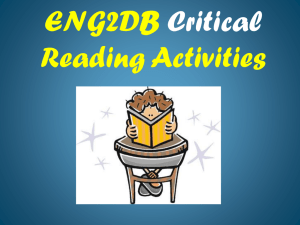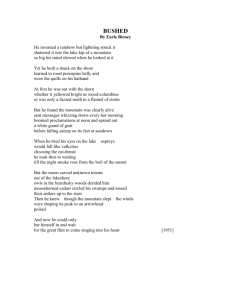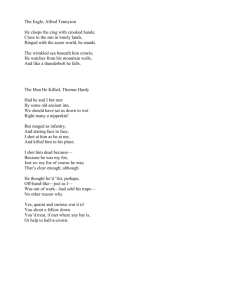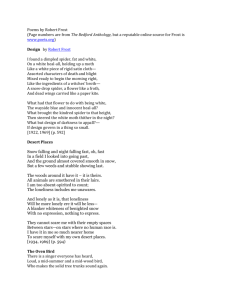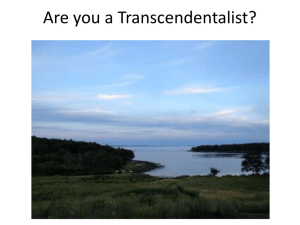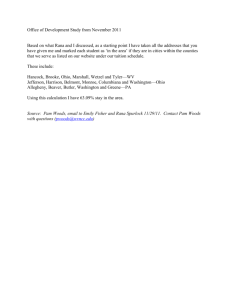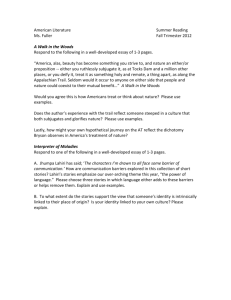Stopping by Woods on a Snowy Evening.doc
advertisement
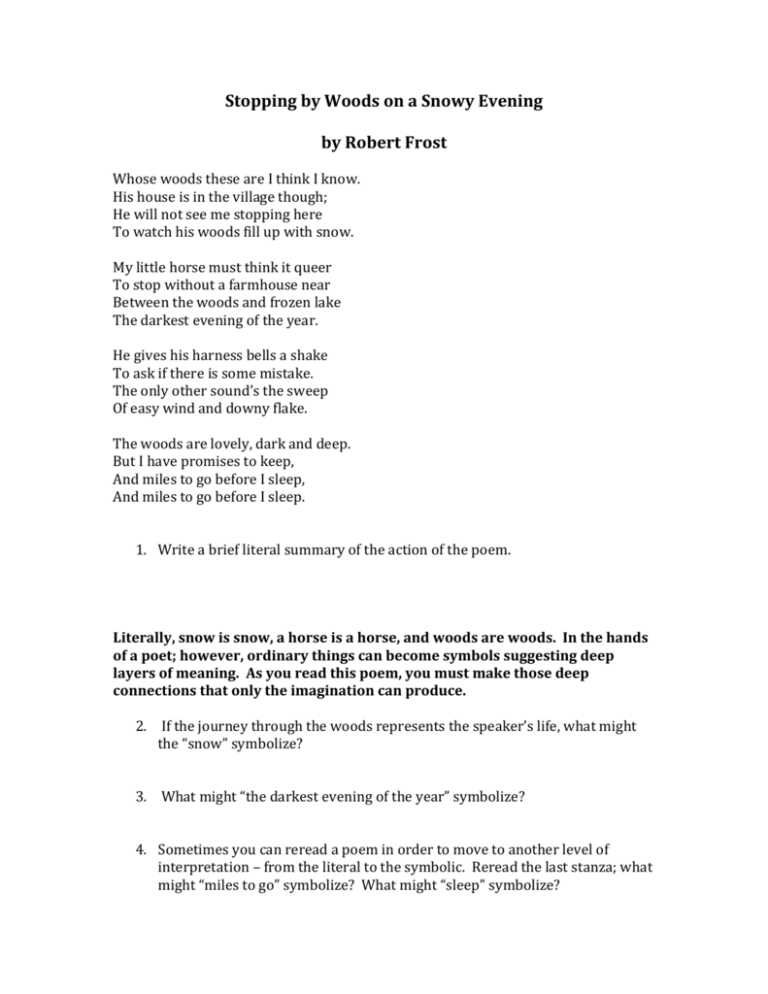
Stopping by Woods on a Snowy Evening by Robert Frost Whose woods these are I think I know. His house is in the village though; He will not see me stopping here To watch his woods fill up with snow. My little horse must think it queer To stop without a farmhouse near Between the woods and frozen lake The darkest evening of the year. He gives his harness bells a shake To ask if there is some mistake. The only other sound’s the sweep Of easy wind and downy flake. The woods are lovely, dark and deep. But I have promises to keep, And miles to go before I sleep, And miles to go before I sleep. 1. Write a brief literal summary of the action of the poem. Literally, snow is snow, a horse is a horse, and woods are woods. In the hands of a poet; however, ordinary things can become symbols suggesting deep layers of meaning. As you read this poem, you must make those deep connections that only the imagination can produce. 2. If the journey through the woods represents the speaker’s life, what might the “snow” symbolize? 3. What might “the darkest evening of the year” symbolize? 4. Sometimes you can reread a poem in order to move to another level of interpretation – from the literal to the symbolic. Reread the last stanza; what might “miles to go” symbolize? What might “sleep” symbolize? 5. Whatever the woods stand for, what has the speaker said “yes” to in resolving to go on. In other words, how has he resolved his conflict? What “promises” might he have to keep? 4.
